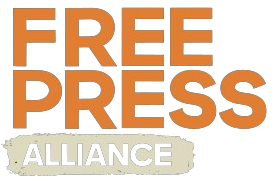Press freedom is a fundamental pillar of functional democracy and an informed society. However, its decline can trigger a domino effect with profound political, social, and economic consequences. Here is an analysis of the main impacts of weakened press freedom across various areas.
When press freedom is restricted, access to truthful and diverse information becomes a privilege rather than a right. In such a context, media outlets can be co-opted as tools for spreading propaganda, favoring powerful actors such as governments or corporations. Manipulating public opinion through censorship and misinformation prevents citizens from being well-informed, thereby limiting their ability to make critical decisions.
A restricted flow of information also weakens investigative journalism. Under the risk of retaliation, journalists may resort to self-censorship, significantly reducing the media’s ability to investigate and expose corruption, abuses of power, and other issues of social importance.
An environment lacking in press freedom is conducive to corruption. The media acts as a crucial barrier against abuses of power by exposing illegal and unethical actions by political and economic elites through public scrutiny. Weakening this function creates a void in oversight, facilitating the spread of corruption within public and private institutions.
A lack of transparency and accountability reinforces a cycle of impunity, where those responsible for malpractice rarely face consequences. This decline in the press’s oversight capacity undermines democratic institutions, which rely on public scrutiny and exposure to maintain their integrity.
Democracy depends on well-informed citizens who can actively participate in the political process. Without a free press, society loses access to critical information needed to assess leaders, policies, and the overall direction of the country. This directly affects the quality of public debate and citizen participation in democratic processes.
Moreover, a controlled or censored press fosters an environment of distrust and political apathy. Citizens, perceiving that the media does not represent their interests or provide truthful information, become more skeptical of the political system. This can lead to decreased electoral participation, as well as increased discontent and polarization.
The deterioration of press freedom often goes hand in hand with the repression of dissenting voices and the violation of human rights. In many cases, governments that restrict press freedom persecute journalists, activists, and human rights defenders who try to expose injustices. This persecution may manifest as censorship, imprisonment, or even assassination of those who challenge power.
Censorship and self-censorship create an atmosphere of fear that inhibits not only journalists but also society as a whole from freely expressing themselves. This kind of repression silences criticism and demands for justice, compounding a lack of transparency and reinforcing impunity for abuses.
In economic terms, an environment without press freedom affects transparency in government and business, generating market uncertainty and deterring investors. The absence of credible information on economic policies, corruption, or mismanagement of resources undermines both internal and external confidence in the country’s institutions.
Additionally, rampant corruption, enabled by the absence of a free press, contributes to poor resource allocation, which can hinder economic development. In this sense, press freedom is not only a democratic value but also a crucial factor for a country’s economic efficiency and sustainability.
Limiting press freedom also has negative social effects. When media diversity is suppressed, dominant narratives often aim to polarize society, fostering ideological and political divisions. The lack of open public debate, sustained by a free press, can lead to the radicalization of positions and extremism.
Furthermore, the spread of fake news becomes more problematic without a free press to verify and debunk falsehoods. This creates an environment of chronic misinformation that breeds confusion and conflict among different social groups.
In conclusion, the deterioration of press freedom has profound and far-reaching consequences. It restricts access to truthful and diverse information, enables the spread of corruption, undermines democracy, fosters human rights violations, and harms the economic and social fabric. In a global context where many countries face challenges in preserving press freedom, it is crucial to recognize that its protection is not only an ethical imperative but also an essential condition for the democratic, economic, and social well-being of nations.
The weakening of press freedom represents a direct threat to stability and progress, and it is the responsibility of both governments and citizens to actively defend it.

